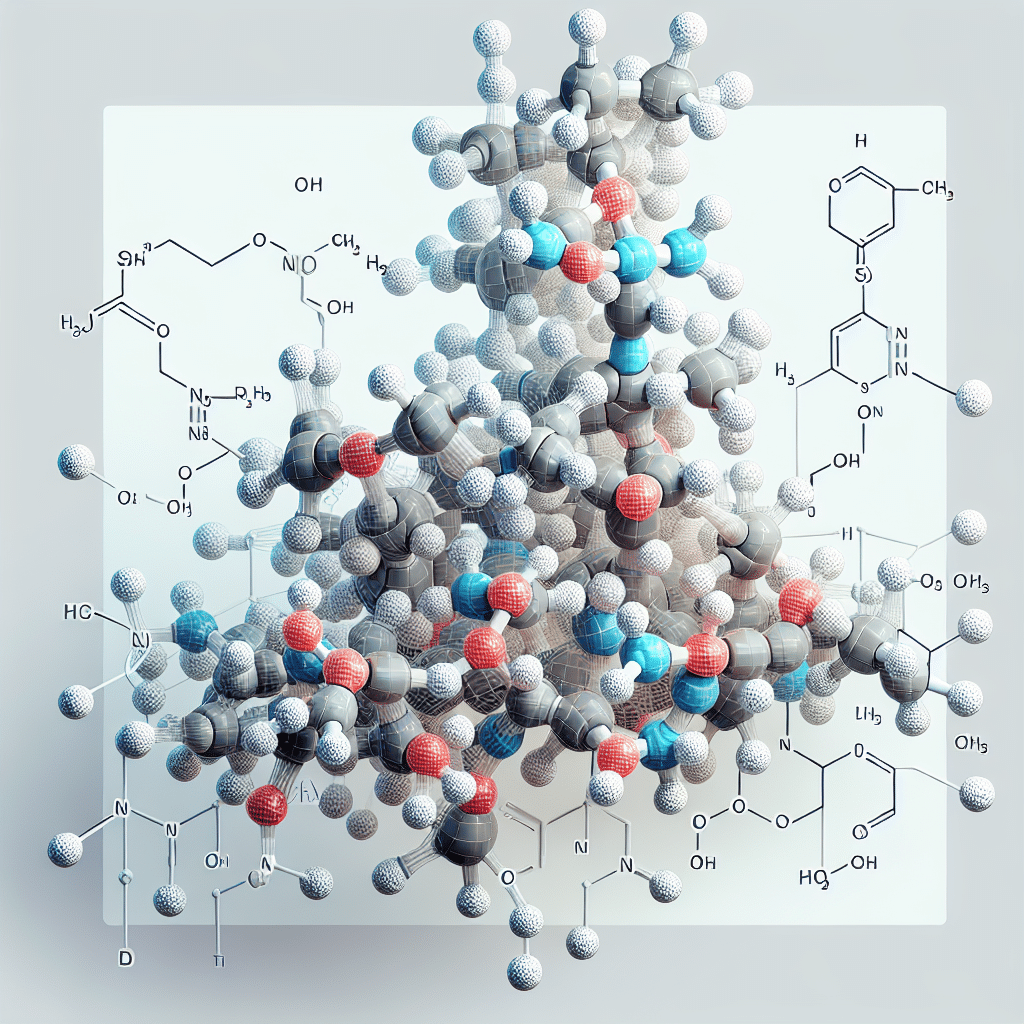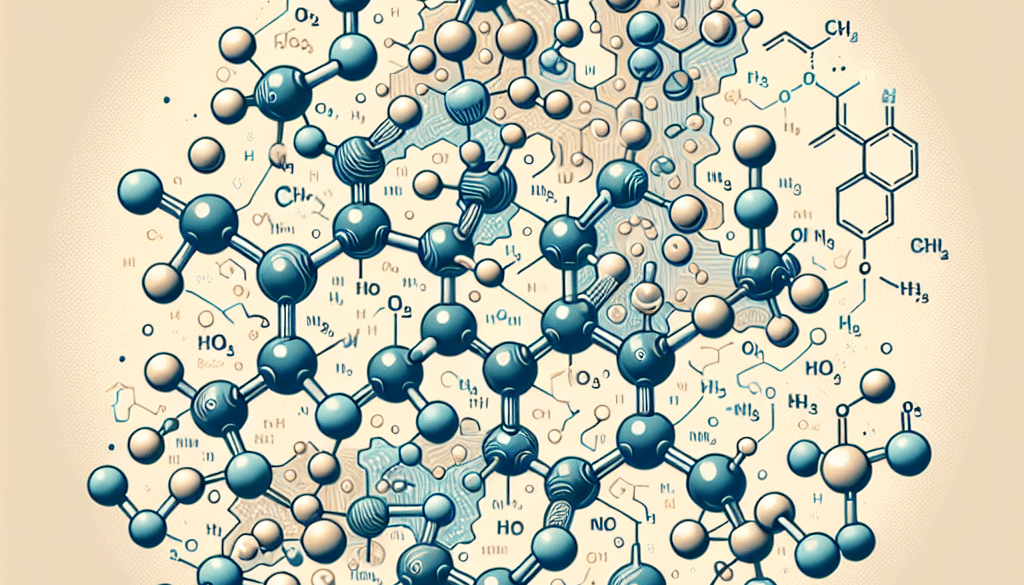Chondroitin Sulfate Sodium Molecular Weight
-
Table of Contents
- Chondroitin Sulfate Sodium: Understanding Its Molecular Weight and Benefits
- What is Chondroitin Sulfate Sodium?
- The Significance of Molecular Weight
- Low vs. High Molecular Weight Chondroitin Sulfate
- Measuring the Molecular Weight of Chondroitin Sulfate Sodium
- Factors Affecting Molecular Weight
- Applications and Benefits of Chondroitin Sulfate Sodium
- Therapeutic Uses
- Research and Case Studies
- Chondroitin Sulfate Sodium in the Market
- Regulatory Considerations
- Conclusion: The Importance of Molecular Weight in Chondroitin Sulfate Sodium
- Discover ETchem’s Protein Products
Chondroitin Sulfate Sodium: Understanding Its Molecular Weight and Benefits

Chondroitin sulfate sodium is a chemical that is found in the cartilage around joints in the body. It is commonly used in dietary supplements and medications for osteoarthritis and other joint disorders. Understanding the molecular weight of chondroitin sulfate sodium is crucial for its application in pharmaceuticals and nutraceuticals, as it affects the compound’s solubility, bioavailability, and therapeutic efficacy.
What is Chondroitin Sulfate Sodium?
Chondroitin sulfate sodium is a sulfated glycosaminoglycan (GAG) composed of a chain of alternating sugars (N-acetylgalactosamine and glucuronic acid). It is often used in combination with other supplements such as glucosamine. Chondroitin sulfate sodium is believed to help the body maintain fluid and flexibility in the joints, and it has been widely studied for its potential to alleviate pain and inflammation associated with joint disorders.
The Significance of Molecular Weight
The molecular weight of chondroitin sulfate sodium is a critical factor that influences its biological activity. It refers to the mass of one molecule of the compound and is usually expressed in Daltons (Da) or kilodaltons (kDa). The molecular weight of chondroitin sulfate sodium can vary significantly depending on its source and the method of extraction.
Low vs. High Molecular Weight Chondroitin Sulfate
- Low Molecular Weight: Chondroitin sulfate with a lower molecular weight is thought to be more easily absorbed by the body, potentially leading to enhanced therapeutic effects.
- High Molecular Weight: Higher molecular weight chondroitin sulfate may have a longer duration of action within the body but may be less readily absorbed.
Measuring the Molecular Weight of Chondroitin Sulfate Sodium
The molecular weight of chondroitin sulfate sodium is typically determined using techniques such as size-exclusion chromatography or polyacrylamide gel electrophoresis. These methods allow researchers to estimate the average molecular weight of chondroitin sulfate samples and assess their suitability for various applications.
Factors Affecting Molecular Weight
- Source Material: The origin of the chondroitin sulfate (bovine, porcine, avian, or marine sources) can influence its molecular weight.
- Extraction Process: The method used to extract and purify chondroitin sulfate can result in different molecular weight ranges.
- Enzymatic Degradation: Enzymatic treatment can be used to reduce the molecular weight of chondroitin sulfate to achieve desired properties.
Applications and Benefits of Chondroitin Sulfate Sodium
Chondroitin sulfate sodium is widely used in the treatment of osteoarthritis and joint pain. Its ability to support cartilage structure and inhibit enzymes that break down cartilage makes it a valuable component in joint health supplements.
Therapeutic Uses
- Alleviating joint pain and improving joint function in osteoarthritis patients.
- Supporting cartilage health and preventing cartilage breakdown.
- Potentially aiding in the treatment of other conditions such as heart disease and interstitial cystitis.
Research and Case Studies
Several studies have investigated the efficacy of chondroitin sulfate sodium in treating osteoarthritis. For example, a randomized controlled trial published in the journal “Arthritis & Rheumatism” found that chondroitin sulfate was effective in reducing pain and improving function in patients with knee osteoarthritis.
Chondroitin Sulfate Sodium in the Market
The global market for chondroitin sulfate sodium is substantial, with a wide range of products available for consumers. The quality and molecular weight of these products can vary, which is why consumers should look for supplements that specify the molecular weight range and source of their chondroitin sulfate.
Regulatory Considerations
As a dietary supplement, chondroitin sulfate sodium is regulated differently than pharmaceuticals. In the United States, it falls under the Dietary Supplement Health and Education Act (DSHEA) of 1994, which means it is not subject to the same rigorous testing as drugs. However, manufacturers are responsible for ensuring the safety and labeling accuracy of their products.
Conclusion: The Importance of Molecular Weight in Chondroitin Sulfate Sodium
The molecular weight of chondroitin sulfate sodium is a key determinant of its effectiveness as a supplement or therapeutic agent. Understanding and controlling the molecular weight is essential for optimizing the absorption and bioactivity of chondroitin sulfate sodium in the body. As research continues to uncover the nuances of how molecular weight affects the benefits of chondroitin sulfate sodium, consumers and healthcare providers can make more informed decisions about its use.
Discover ETchem’s Protein Products
If you’re interested in high-quality protein products, including those containing chondroitin sulfate sodium, ETchem is a company worth considering. ETchem specializes in a variety of collagen products that cater to different industries and applications. Their commitment to quality and customer satisfaction makes them a reliable source for your protein needs.
About ETChem:
ETChem, a reputable Chinese Collagen factory manufacturer and supplier, is renowned for producing, stocking, exporting, and delivering the highest quality collagens. They include marine collagen, fish collagen, bovine collagen, chicken collagen, type I collagen, type II collagen and type III collagen etc. Their offerings, characterized by a neutral taste, instant solubility attributes, cater to a diverse range of industries. They serve nutraceutical, pharmaceutical, cosmeceutical, veterinary, as well as food and beverage finished product distributors, traders, and manufacturers across Europe, USA, Canada, Australia, Thailand, Japan, Korea, Brazil, and Chile, among others.
ETChem specialization includes exporting and delivering tailor-made collagen powder and finished collagen nutritional supplements. Their extensive product range covers sectors like Food and Beverage, Sports Nutrition, Weight Management, Dietary Supplements, Health and Wellness Products, ensuring comprehensive solutions to meet all your protein needs.
As a trusted company by leading global food and beverage brands and Fortune 500 companies, ETChem reinforces China’s reputation in the global arena. For more information or to sample their products, please contact them and email karen(at)et-chem.com today.




